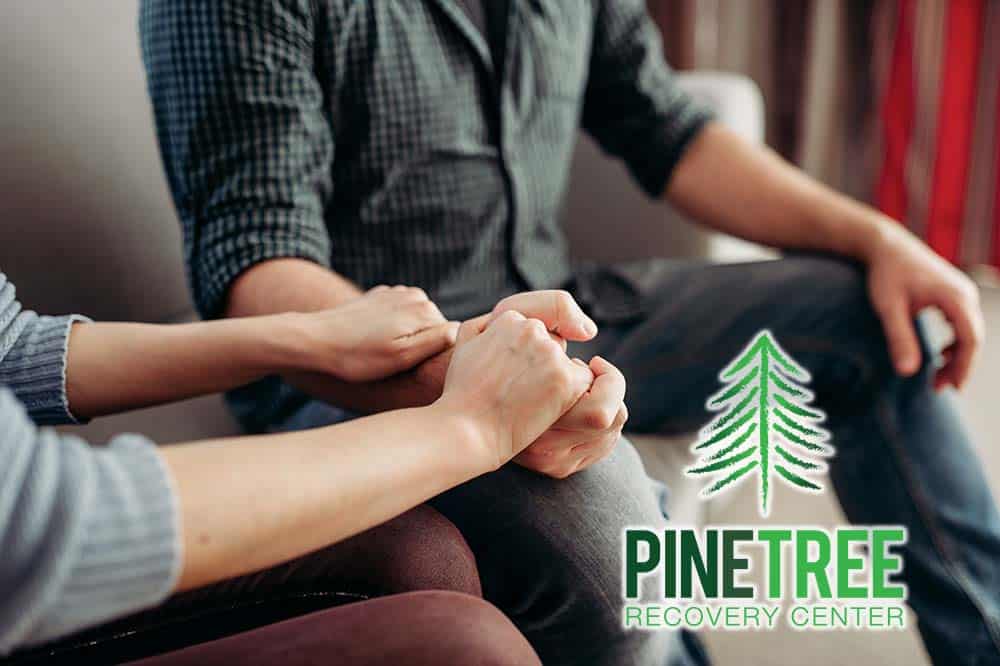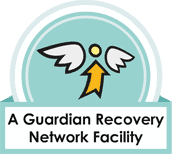Post-traumatic stress disorder and addiction are very closely intertwined in the vast majority of cases. The link between the two disorders has been closely studied for years, and it has been repeatedly confirmed that unresolved trauma and substance abuse go hand-in-hand for a wide variety of reasons. In many cases, the individual that has suffered through a traumatic experience (or set of experiences) will turn to drugs or alcohol as a means of self-medicating intrusive thoughts and persistent, uncomfortable emotions. The American Psychology Association recently published a study in 1999 titled, “Substance use disorder and posttraumatic stress disorder comorbidity: Addiction and psychiatric treatment rates.” The in-depth and comprehensive study focused on the relationship between the two disorders, and the rates at which those struggling with PTSD actually sought treatment. It was discovered that sufferers of unresolved trauma sought addiction treatment far more frequently than they sought treatment for PTSD. The truth about PTSD and addiction is that those who are suffering from post-traumatic stress disorder will rarely seek any form of recovery unless they are simultaneously struggling from drug addiction or alcoholism. This is why it is so important that addiction treatment centers offer psychiatric services. At Pine Tree Recovery Center, we offer dual diagnosis services to men and women of any age and personal background who are committed to beginning their personal recovery journeys.
What is PTSD?
So what is post-traumatic stress disorder? In short form, it is a severe, anxiety-related disorder that stems from unresolved trauma; a disorder that can be extremely disruptive to daily life when left untreated. PTSD can last for months or years, and it affects every individual in different ways based on the trauma that was suffered and pre-existing factors such as genetic predisposition or underlying mental health conditions. It is important to note that because the disorder is so individualized, what causes the development of PTSD in one person might not affect a different person so gravely. For example, say one person gets into a significant car accident and sustains some major injuries. For them, the experience results in post-traumatic stress – flashbacks, nightmares, and the active avoidance of motor vehicles. Say another person gets into a car accident and sustains the same injuries. For them, the entire ordeal might have been painful and uncomfortable, but they might not have endured any lasting psychological issues as a direct result. It all depends on the individual person.
We Are Here For You
Those who develop PTSD will often grapple with the same major symptoms, though the symptom specifics will vary on a person-to-person basis. There are said to be four major symptoms of PTSD, including:
- Flashbacks – Having flashbacks to the event itself or to the feelings experienced at the time of the event is extremely common. Flashbacks can occur as nightmares, which often leads to disrupted sleep patterns and insomnia.
- Avoidance – Those who experience trauma often avoid people, places or things that could potentially trigger a flashback or instigate feelings of anxiety or panic. For example, a woman who was sexually assaulted by a member of the opposite sex might actively avoid men, or a combat veteran who lost a limb in an explosion might actively avoid loud noises (forego attending a 4th of July fireworks show for fear of being triggered, in example).
- Reactivity – Those who are suffering from unresolved trauma or post-traumatic stress will often have a difficult time effectively managing their emotions. They are more prone to violent outbursts and often grapple with severe anger issues, as well as increased irritability and agitation.
- Changes to mood, namely anxiety and depression – PTSD is an anxiety disorder, and sufferers are prone to the symptoms that go hand-in-hand with anxiety, such as panic attacks, shortness of breath, and general feelings of worry and discomfort.
Post-traumatic stress disorder – like all other mental health conditions – does not discriminate. Anyone who experiences trauma is liable to develop this specific psychological disorder. However, those that have experienced the following experiences have higher rates of PTSD:
- War veterans.
- Adults who experienced childhood trauma, such as abuse or neglect.
- Individuals who have been violently attacked, or experienced another form of physical or sexual assault.
- Individuals who have experienced the death of a loved one.
- Accident survivors/those who lived through extreme injuries or illnesses.
- Natural disaster survivors.
Our Drug & Alcohol Detox Services Include
PTSD and Alcohol Addiction
A study published by the Alcohol Research Current Reviews titled, “The role of uncontrollable trauma in the development of PTSD and alcohol addiction,” explains the clear link between post-traumatic stress and alcoholism. The study suggests that one of the main reasons an individual suffering from PTSD might drink is to subconsciously attempt to replenish depleted endorphins. The study reads, “Within minutes of exposure to a traumatic event there is an increase in the level of endorphins in the brain. During the time of the trauma, endorphin levels remain elevated and help numb the emotional and physical pain of the trauma. However, after the trauma is over, endorphin levels gradually decrease and this may lead to a period of endorphin withdrawal that can last from hours to days.” In order to combat these post-traumatic endorphin changes, trauma sufferers will often turn to alcohol – a chemical substance that has been proven to increase endorphin activity. This is essentially what “self-medicating” means – reaching for a chemical substance (like alcohol) in an attempt to combat uncomfortable feelings and emotions. The biochemical changes that occur when an individual is exposed to significant trauma actually increase the propensity for alcohol and drug abuse a significant amount.
The type of chemical substance that is being abused will depend on the individual and a number of contributing factors. For example, if a war veteran has a family history of alcoholism, he or she might be more likely to reach for the bottle over any other substance. If an individual is prescribed a prescription painkiller for a war-related injury, he or she might be more inclined to begin abusing opiates, seeing as they are readily available. It is crucial that those suffering from unresolved trauma and addiction of any type or severity seek professional medical care immediately. Otherwise, the two disorders will continue to exacerbate one another’s symptoms, and a steep mental, emotional and physical decline will rapidly occur.
Ready To Begin Your Drug & Alcohol Detox?
We Offer A Safe & Effective Program
Don’t let Drug & Alcohol addiction control your life.
Call us today and let’s get you started on the path to a better you.
PTSD and Drug Addiction
The US Department of Veterans Affairs suggests that undergoing significant trauma is far from uncommon, and developing a substance abuse disorder as a result is very likely. Below are some statistics regarding the prevalence of this specific disorder that the National Center for PTSD has provided in order to confirm the high rates of untreated PTSD throughout the country.
PTSD and Addiction – Facts and Statistics
- It is estimated that around 8 percent of the total American population will suffer from post-traumatic stress disorder at one point during their lives.
- It is also estimated that roughly 8 million American adults are living with PTSD during any given year. While this number is high, it only makes a small portion of American adults who have lived through trauma.
- Rates of PTSD are higher amongst women – while 10 out of every 100 women will develop post-traumatic stress disorder at some point during their lives, only 4 out of every 100 men will be diagnosed.
Begin Healing Now!
Have A Call With One Of Our Treatment Advisors
Don’t Suffer Any Longer
Pine Tree Recovery and Dual Diagnosis Treatment
At Pine Tree Recovery Center, we offer integrated, dual diagnosis treatment options to those who are struggling with PTSD and addiction. To learn more, give us a call today. We understand just how painful living with unresolved trauma can be, and our dedicated and compassionate team of staff members is available to help. We are standing by to answer any additional questions you may have, and get you admitted to our comprehensive and quality clinical program as quickly as possible.

Reviewed for accuracy by:
Randi Bruneau
LCSW, LADC, CCS
Randi is a Licensed Clinical Social Worker and Licensed Alcohol and Drug Counselor and Supervisor who has over 20 years of experience in the field of mental health and addictions. She has worked in both clinical and administrative leadership roles and also has extensive career experience in gender specific trauma treatment, crisis intervention, structural family work and substance use disorder treatment and supervision.























